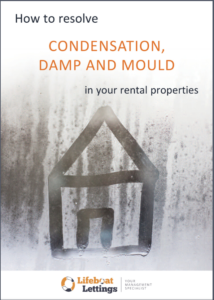
A local authority in Kent has recently fined two landlords a total of £25,200.
The landlords were operating an HMO in Sittingbourne, Kent and were fined for having more occupants than allowed by their license.
Swale Borough Council’s housing enforcement team carried out an investigation and found more people living in the property than permitted. A kitchen within the HMO had been converted into a self-contained unit for a couple, which the enforcement team concluded greatly increased the risks to the tenants’ safety and well-being.
A council spokesperson says: “This is a significant fine which sends a clear message to HMO landlords that we will not tolerate breaches of licence conditions or management regulations. “Overcrowded living conditions aren’t just unpleasant for those living there, but increases the risk of hazards like fire, and can mean people don’t have access to essential amenities.
The landlords were found to be in breach of the Housing Act 2004, which regulates the management and safety standards in HMOs. They have subsequently agreed with the council’s findings and paid the fine.
This type of case – which is not at all uncommon – highlights the need for landlords to understand the licensing process and its implications and make sure they are always abiding by the terms of the licence. At Lifeboat Lettings, we can provide support for landlords navigating licence applications and with any of their queries regarding what is and is not permitted under the license terms.
So, How as a Landlord Can You Avoid This Situation?
Houses in Multiple Occupation (HMOs) are a popular choice for landlords looking to maximise rental income. However, HMO properties come with additional legal responsibilities, particularly around licensing. Whether you’re a seasoned landlord or new to HMOs, understanding the licensing process and requirements is essential to stay compliant and avoid costly penalties.
In the remainder of this article, we’ll explore the key aspects of HMO licensing, including how to apply, typical requirements, legal obligations, and tips to ensure your property is license-ready.
What is an HMO, and When Do You Need a Licence?
A House in Multiple Occupation (HMO) is defined as a property rented out by at least three unrelated tenants forming more than one household who share facilities such as bathrooms or kitchens.
Under the Housing Act 2004, certain HMOs require a licence:
- Mandatory HMO Licensing: Applies to properties with five or more tenants forming two or more households.
- Additional Licensing: Local councils may require licensing for smaller HMOs under their specific schemes.
- Selective Licensing: Some councils may also extend licensing to other rented properties in specific areas.
Key tip: Always check with your local authority to determine if your property falls under these categories, as rules may vary.
How to Apply for an HMO Licence
Applying for an HMO licence typically involves:
- Contacting Your Local Authority
Visit your council’s website or contact their housing department. Each local authority has its own application process and fees. - Completing the Application Form
You’ll need to provide:- Details of the property (layout, amenities, and safety features).
- Personal and business information.
- Evidence of compliance with health and safety standards.
- Paying the Application Fee
Fees range from £500 to £1,500+, depending on the council and property size. - Property Inspection
The council will inspect the property to ensure it meets licensing requirements.
Typical HMO Licence Requirements
To obtain a licence, your property must meet certain standards, including:
- Room Sizes
Minimum bedroom sizes are typically 6.51m² for a single adult and 10.22m² for two adults sharing. - Fire Safety Measures
- Properly maintained smoke alarms.
- Fire doors and clear escape routes.
- Gas and Electrical Safety
- Annual gas safety certificates.
- Five-yearly Electrical Installation Condition Reports (EICR).
- Waste Management
Adequate bins and waste disposal arrangements. - Facilities
Sufficient bathrooms, toilets, and kitchen facilities for the number of occupants.
Consequences of Non-Compliance
Failure to obtain or comply with an HMO licence can result in severe penalties:
- Fines
Landlords can face unlimited fines for renting out an unlicensed HMO. - Rent Repayment Orders
Tenants can reclaim up to 12 months’ rent. - Banning Orders
Persistent offenders may be banned from letting properties altogether.
Tips for Preparing Your HMO for Licensing
- Consult Your Local Authority Early
Speak to your council to confirm the property meets their licensing requirements. - Hire a Professional
Consider engaging an HMO consultant or property manager for advice. - Conduct a Self-Assessment
Check fire safety, room sizes, and amenities before applying. - Plan for Inspections
Keep all documentation (gas safety certificates, EICR, tenancy agreements) organised and accessible.
How to Comply with HMO Licence Conditions
Once you receive your licence, compliance is crucial to avoid enforcement action. Key steps include:
- Regularly maintaining safety equipment (e.g., smoke alarms, fire extinguishers).
- Adhering to maximum occupancy limits.
- Renewing your licence before it expires (usually every five years).
- Informing the council of any significant changes, such as new tenants or structural alterations.
Final Thoughts
Navigating HMO licensing can seem daunting, but with the right preparation and knowledge, it’s manageable. By understanding your responsibilities and maintaining compliance, you can avoid penalties and maximise the potential of your property.
Lifeboat Lettings specialises in HMO management across Kent, helping landlords ensure their properties meet all legal requirements. Whether you need advice, assistance with licensing applications, or full property management, we’re here to help.
If you’re a landlord in Kent and want expert guidance on HMO licensing or property management, get in touch with Lifeboat Lettings today. Let us help you navigate the complexities of HMO legislation, so you can focus on growing your property portfolio.
Ready to get started? Contact us for a free consultation!





